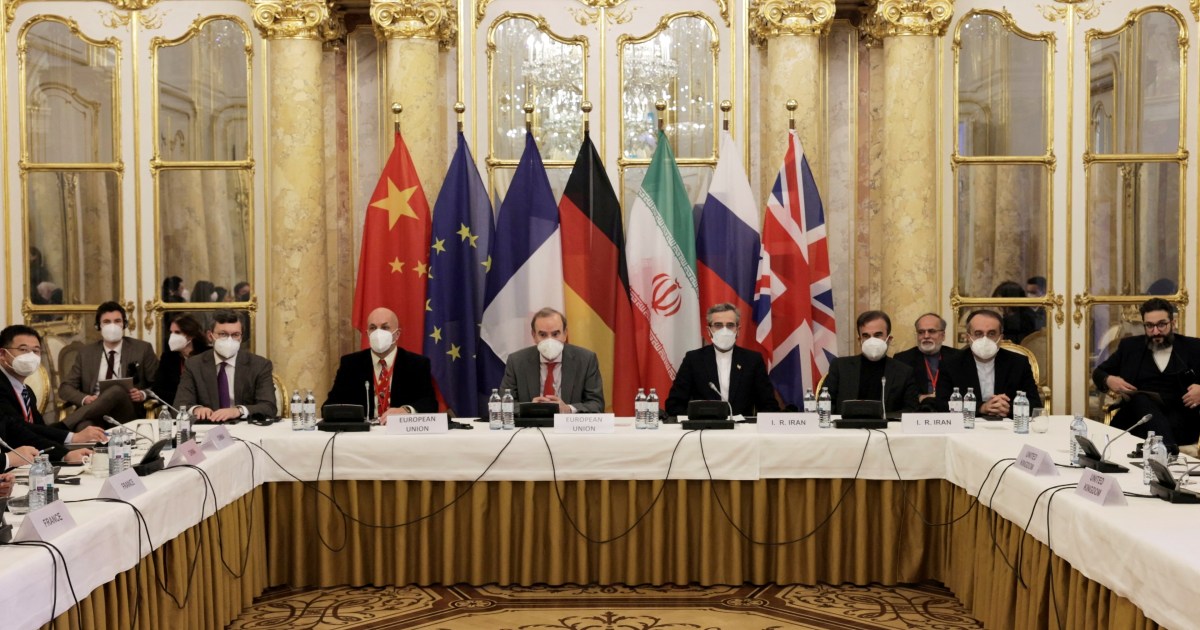Tehran -
Ahead of the start of the eighth round of Vienna negotiations aimed at reviving the nuclear agreement, reports that it had entered a crucial stage were reflected in the improvement of the Tehran Stock Exchange index on the one hand and the decline in the hard currency rate on the other.
But with the specter of pessimism returning to the negotiations, hopes for a quick agreement on the Iranian nuclear deal quickly dwindled.
Which raised questions about the thorny issues that hinder the revival of the agreement.
The Secretary of the Iranian Supreme National Security Council, Ali Shamkhani, highlighted the reason for prolonging the negotiations, and summarized the thorny issues in the "mechanisms for verifying the lifting of sanctions and guarantees", describing them - in a tweet on Twitter - as "an integral part of any good agreement."
lift sanctions
In details, the researcher in international relations, Hasan Beheshtipur, believes that "lifting the sanctions" is the most thorny issue in the Vienna negotiations.
He explained that Iran is demanding the lifting of all sanctions imposed on it, which the US side rejects, and proposes suspending part of them and keeping another part, especially with regard to the embargo measures on oil, gas, petrochemicals and banks.
And he added - in his speech to Al-Jazeera Net - that "maintaining sanctions on the Iranian Central Bank means that Tehran will not be able to recover the proceeds of its exports from abroad," stressing that Tehran insists on lifting all sanctions, facilitating exports and the return of its revenues, in addition to releasing its frozen assets abroad.
Verification Mechanisms
The most important outstanding issues after the lifting of sanctions is to reach a mechanism for verifying the full lifting of these sanctions, according to Beheshtipur, who confirms that the International Atomic Energy Agency is the one who will monitor Iran’s nuclear activities after the nuclear agreement is revived, but “there is no one, on the other hand, will monitor the American behavior regarding the nuclear deal.” Practical lifting of sanctions.
He explains that there are American demands regarding Iran's retreat from its escalatory steps that came in response to the American withdrawal from the nuclear agreement, including the fate of highly enriched uranium and advanced centrifuges.
He stressed that "there is talk about transferring these devices and uranium to Russia or keeping them inside the country."
Guarantees of no withdrawal
Beheshtipur believes that the third most important issue that is still pending in the Vienna negotiations is the Iranian demands regarding a guarantee that the US side will not withdraw again from the nuclear agreement, and adds that “President Joe Biden’s administration says that it will not withdraw from the planned agreement, but it refuses to talk.” About the fate of the agreement in the event of a change in the US administration.
Technical issues
In an initiative to break the impasse of guarantees, Iranian Foreign Minister Hossein Amir Abdollahian said - in an interview with the British Financial Times, published yesterday, Wednesday - that he instructed the Iranian negotiators to suggest to the Western parties that "their parliaments or the heads of their parliaments should The least - including the US Congress - can declare in the form of a political statement their commitment to the nuclear agreement and return to it.
In this context, the Iranian researcher in international relations, Mohsen Jalilond, believes that Abdullahian's proposal is not applicable, and will not represent a guarantee that any future US president will not withdraw from the agreement, and this is what we witnessed during the withdrawal of former US President Donald Trump, who violated UN Resolution 2231.
He explains - in his speech to Al Jazeera Net - that it cannot be said that the negotiations will reach a dead end in the event that the American side does not provide the required guarantees, and expresses his belief that "Iran, in turn, will refrain from providing any guarantees not to resume its nuclear steps that it took in response to Trump's withdrawal from the agreement." nuclear".
With regard to technical issues, Gilliund says that the Western side still stresses "to keep Iran away from the nuclear escape point or the point of no return in nuclear endeavors", which is a misplaced insistence, because nuclear technology cannot be extracted from Iranian thought, even if it is transferred Advanced centrifuges and highly enriched uranium abroad.
He adds that "Iran wants to keep enriched uranium and centrifuges inside the country, under the supervision of the International Atomic Energy Agency," which Washington fears that Tehran will return to its nuclear activities whenever it wants.
He explains that the Iranian side refuses to return to the implementation of the Additional Protocol to the Treaty on the Non-Proliferation of Nuclear Weapons, because it is a violation of the law ratified by Parliament nearly two years ago, stressing that the reports from Vienna indicate a relative convergence of views regarding the duration of the agreement.

